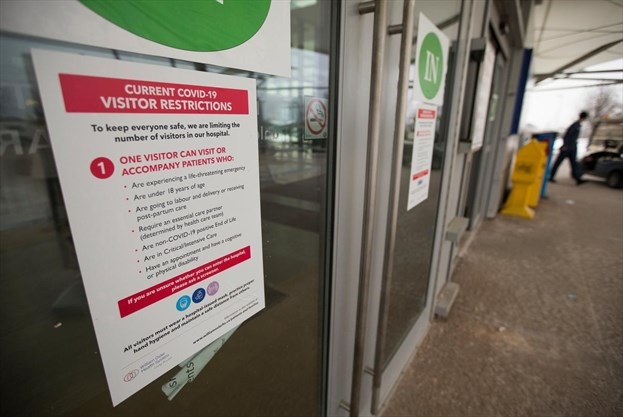The province is once again in a state of emergency with Premier Doug Ford issuing a stay-at-home order that comes into effect at 12:01 a.m. Thursday,
The move follows new data suggesting hospitals may not be able to provide critical care for all patients if COVID-19 infections continue to spread at the predicted levels.
Toronto, the GTA and the rest of the province have been in a lockdown since Boxing Day that includes curbside pick-ups only for most businesses, reduced capacity for essential services like grocery stores and school closures, among other rules.
As before, all residents in the province are being urged to stay home and not to go out unless absolutely necessary — for essential groceries, medical appointments or exercise.
Here are the changes the new rules will bring:
Construction: “Non-essential” construction must now stop. The province did not immediately explain what is classified as essential construction.
Gatherings: Gatherings must remain limited to those within the same household. Outdoor gatherings will be further restricted to just five people from 10. It is now recommended to wear a mask even outside when physical distancing is not possible.
Retail: Non-essential stores (this does not include groceries, pharmacies or restaurants) must open no earlier than 7 a.m. and close by 8 p.m. There were previously no opening hours restrictions.
Schools: In-person classes will remain suspended until Feb. 10 in Toronto, Peel, York, Hamilton and Windsor-Essex. That includes before- and after-school programs. Elsewhere, in-person classes will be subject to new rules, including masking for Grades 1 to 3 and the requirement to wear masks outdoors, as well as increased screening protocols. Emergency child care will remain open in these regions.
Workplaces: All employers must ensure that anyone who can work from home does work from home, after modelling showed travel patterns that have largely remained unchanged since the summer despite climbing case counts.
When it comes to enforcing the stay-at-home order, all enforcement officers — including Toronto police, OPP, Toronto bylaw and provincial workplace inspectors — will have the authority to disperse people, including on private property. They can issue tickets to those not complying with the new rules. They will also be able to close a business or workplace as necessary.
































